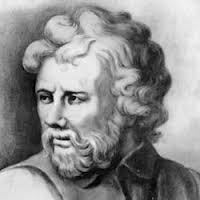Inspirational Quotes on Education
School may have been – or may currently be – boring, a killer of creativity or downright awful for you.
But education is still important because it opens the mind and expands it.
And if your years in school were bad or boring you can still educate yourself now.
So in this post I’d like to share 54 timeless, thought-provoking and inspiring quotes on education.
“It is impossible for a man to learn what he thinks he already knows.”
Mark Zuckerberg.
In this success story, we are going to share Mark Zuckerberg biography, the youngest billionaire on the planet who created the Facebook social network that now has 1 billion monthly active users.
Thanks to Facebook people around the world can easily keep in touch with all their friends. Not long ago, society just did not have such opportunity, but now everything has changed. However, Facebook is not limited only to communication and acquaintances. There are numerous interest groups and fan pages that help to rally the people together. This is not counting the fact Facebook is also a huge database of profiles, exceeding the most popular dating sites and chances to find your second half are impressive.
Epictetus
“Have you ever been at sea in a dense fog, when it seemed as if a tangible white darkness shut you in and the great ship, tense and anxious, groped her way toward the shore with plummet and sounding-line, and you waited with beating heart for something to happen? I was like that ship before my education began, only I was without compass or sounding line, and no way of knowing how near the harbor was. “Light! Give me light!” was the wordless cry of my soul, and the light of love shone on me in that very hour.”
Helen Keller
“If the only tool you have is a hammer, you tend to see every problem as a nail.”
Abraham Maslow
“You can teach a student a lesson for a day; but if you can teach him to learn by creating curiosity, he will continue the learning process as long as he lives.”
Clay P. Bedford
“Anyone who has never made a mistake has never tried anything new.”
Albert Einstein
“Aim for success, not perfection. Never give up your right to be wrong, because then you will lose the ability to learn new things and move forward with your life. Remember that fear always lurks behind perfectionism.”
David M. Burns
“It is the mark of an educated mind to be able to entertain a thought without accepting it.”
Aristotle
“A teacher affects eternity; he can never tell where his influence stops.”
Henry B Adams
“A man’s mind, stretched by new ideas, may never return to its original dimensions.”
Oliver Wendell Holmes Jr.
“Much education today is monumentally ineffective. All too often we are giving young people cut flowers when we should be teaching them to grow their own plants.”
John W. Gardner
“No man who worships education has got the best out of education…. Without a gentle contempt for education no man’s education is complete.”
G.K. Chesterton
“To teach is to learn twice.”
Joseph Joubert
“Why should society feel responsible only for the education of children, and not for the education of all adults of every age?”
Erich Fromm
“Keep away from people who try to belittle your ambitions. Small people always do that, but the really great make you feel that you, too, can become great.”
Mark Twain
“When a subject becomes totally obsolete we make it a required course.”
Peter Drucker
“The first problem for all of us, men and women, is not to learn, but to unlearn.”
Gloria Steinem
“Children have never been very good at listening to their elders, but they have never failed to imitate them.”
James Baldwin
“Example is not the main thing in influencing others. It is the only thing.”
Albert Schweitzer
“Education is a progressive discovery of our own ignorance.”
Will Durant
“The aim of education should be to teach us rather how to think, than what to think — rather to improve our minds, so as to enable us to think for ourselves, than to load the memory with thoughts of other men.”
Bill Beattie
“Education is simply the soul of a society as it passes from one generation to another.”
G.K. Chesterton
“The difference between school and life? In school, you’re taught a lesson and then given a test. In life, you’re given a test that teaches you a lesson.”
Tom Bodett
“He who opens a school door, closes a prison.”
Victor Hugo
“If you think education is expensive, try ignorance.”
Andy McIntyre
“Tell me and I’ll forget; show me and I may remember; involve me and I’ll understand.”
Chinese proverb
“If a man is a fool, you don’t train him out of being a fool by sending him to university. You merely turn him into a trained fool, ten times more dangerous.”
Desmond Bagley
“Nine tenths of education is encouragement.”
Anatole France
“If someone is going down the wrong road, he doesn’t need motivation to speed him up. What he needs is education to turn him around.”







niceee
ReplyDelete